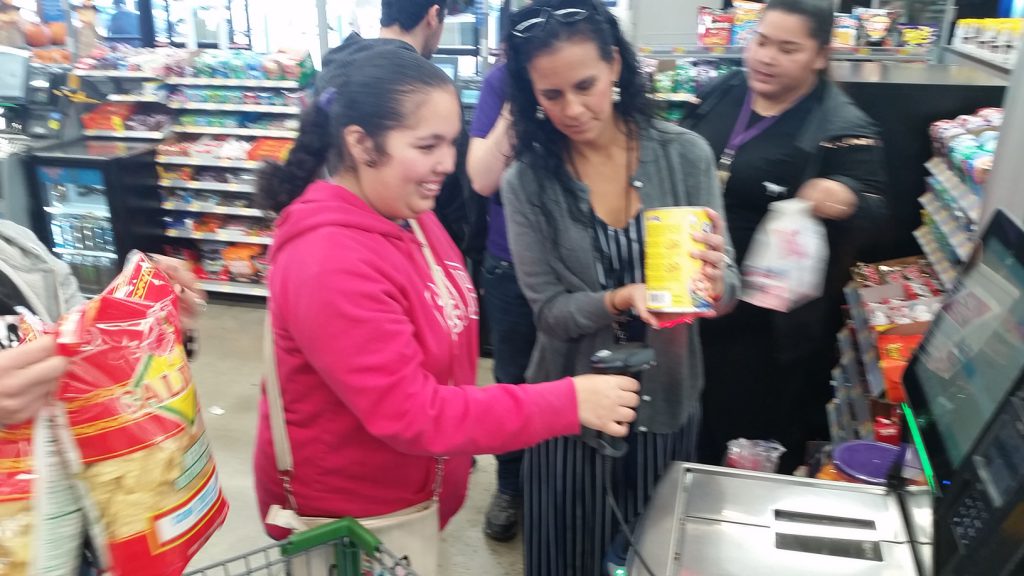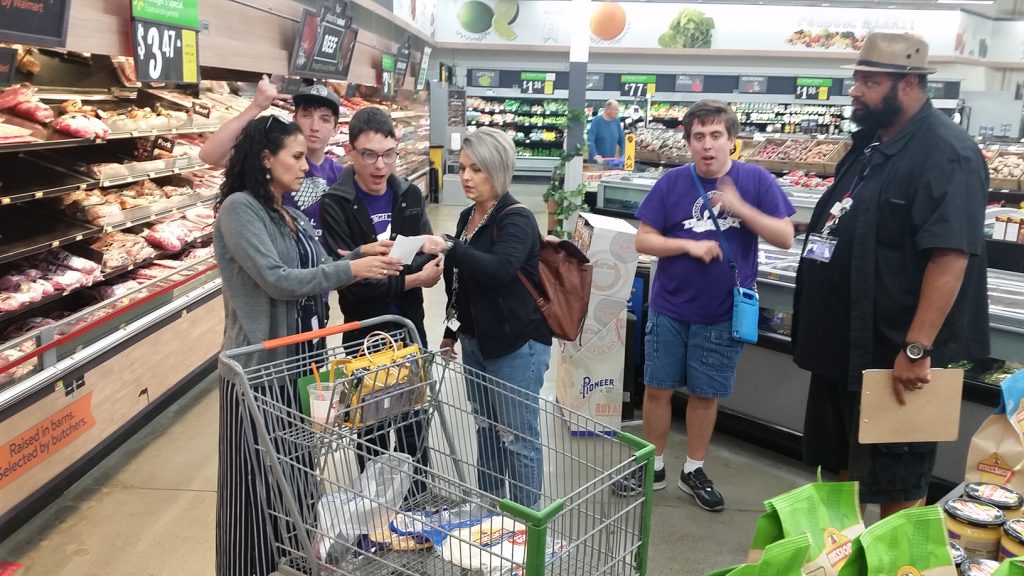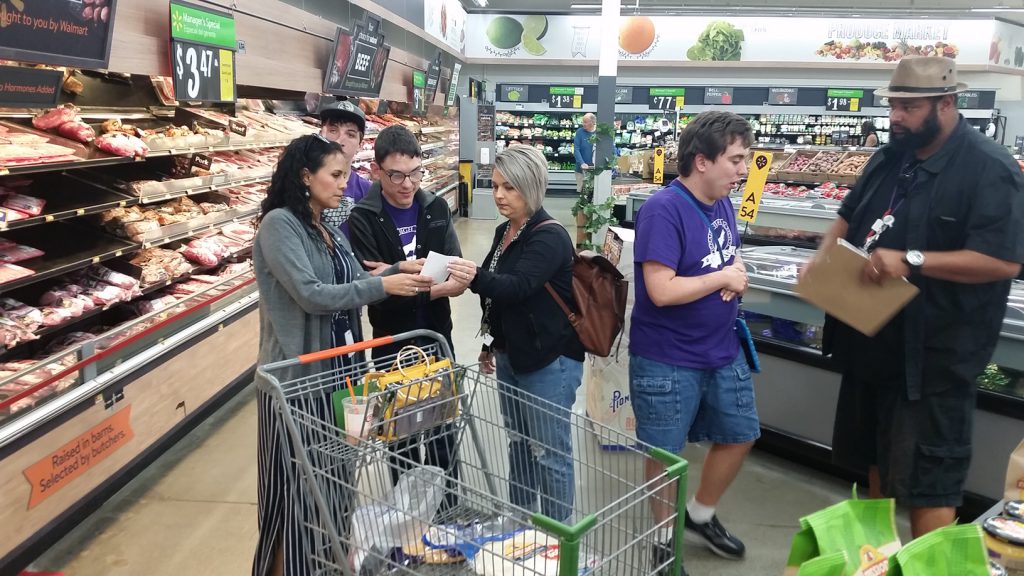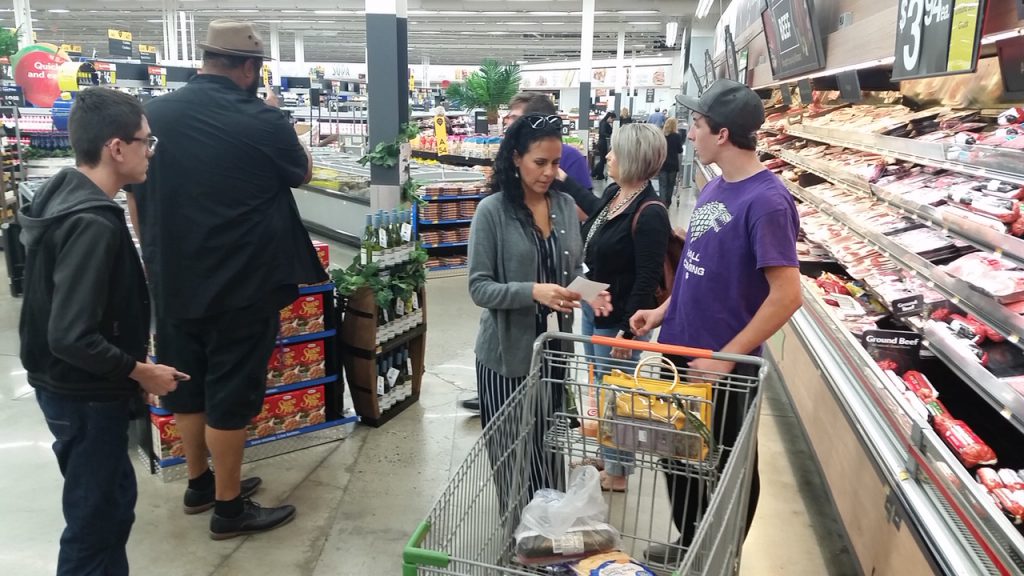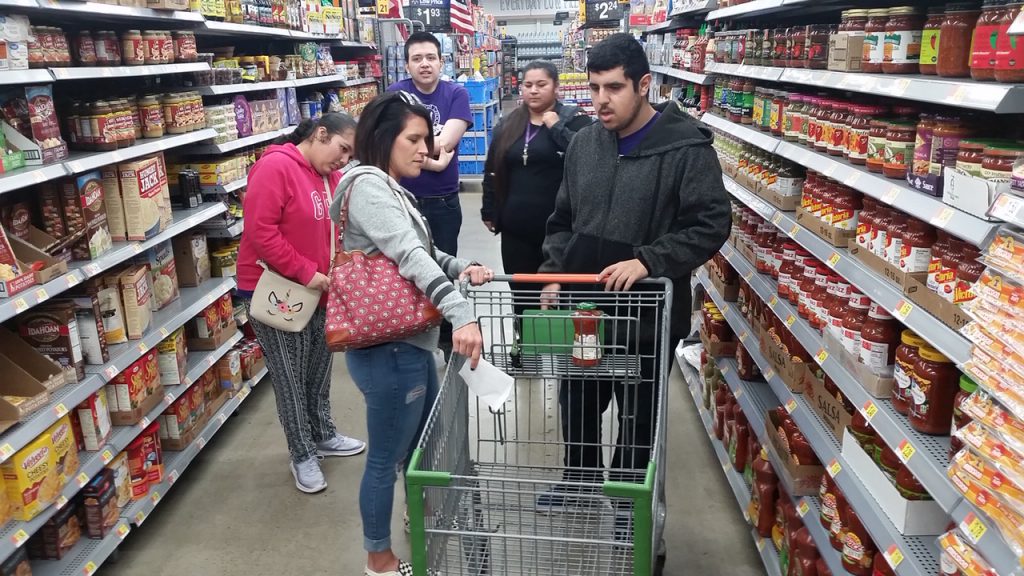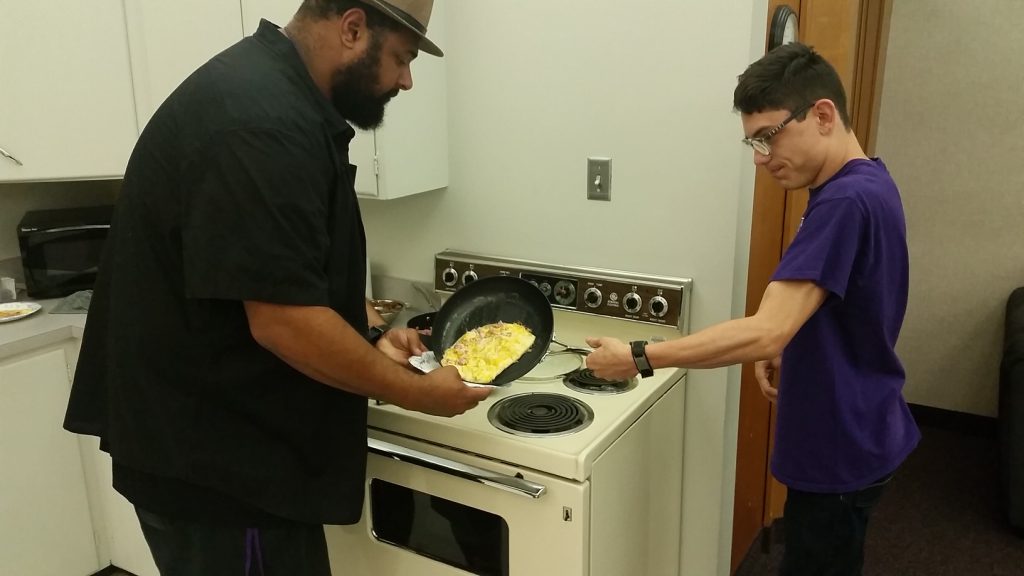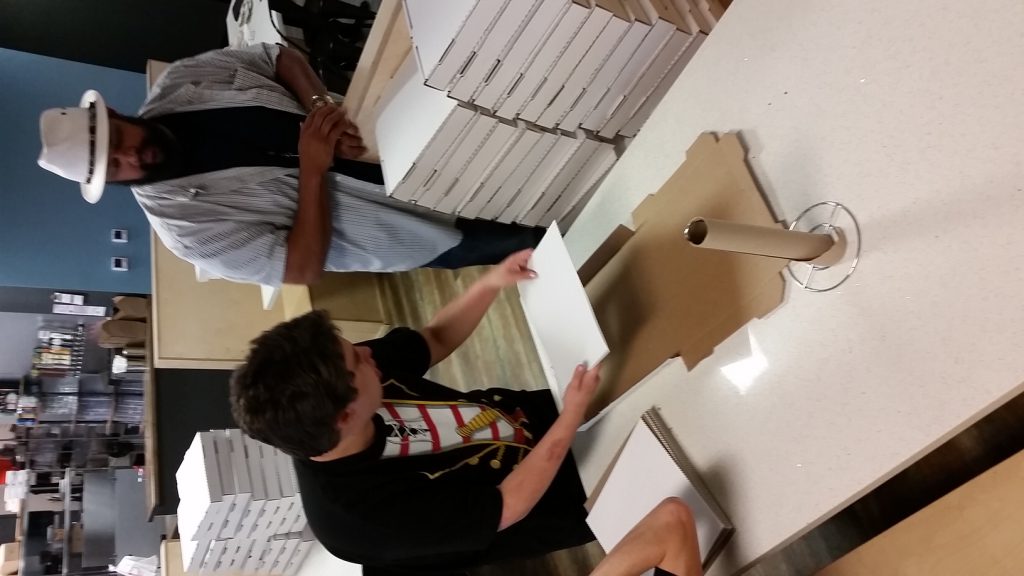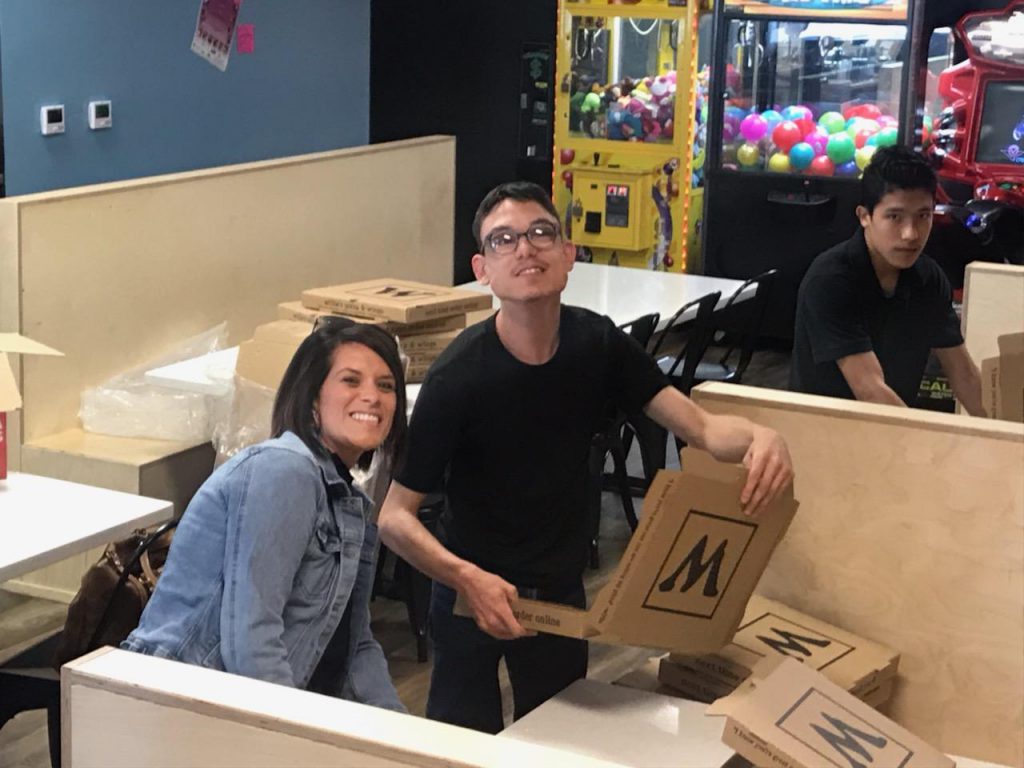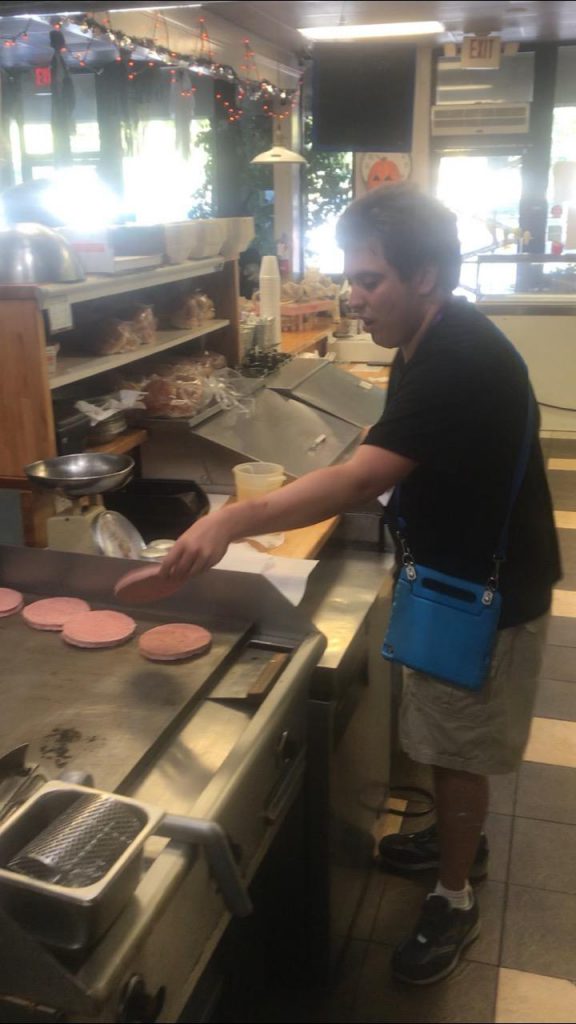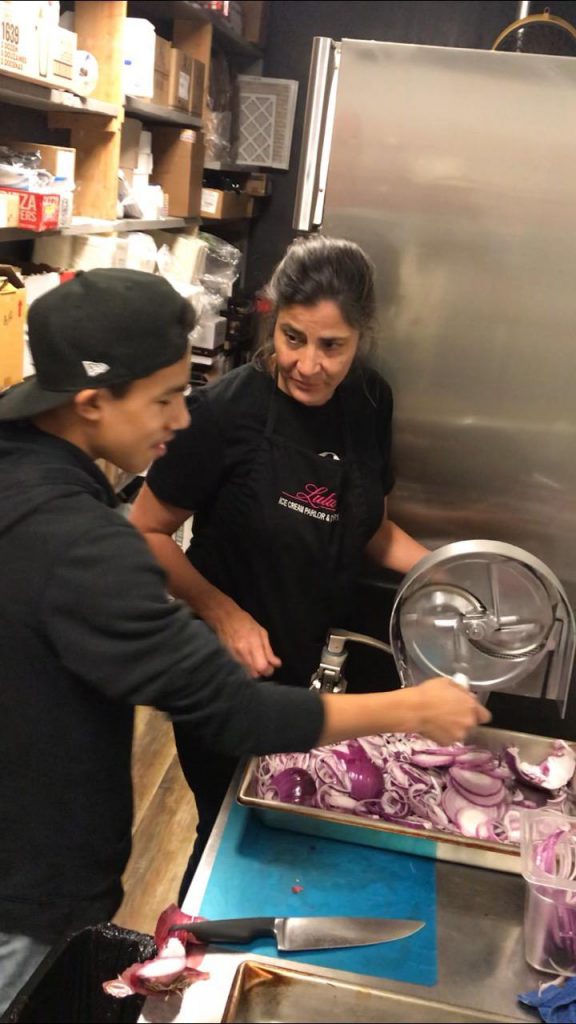Submitted by Denair High School:
Every day, the Project Life students in Renee Hall’s special education class at Denair High School do the laundry, vacuum the floor and clean the classroom.
Twice a week, they cook meals. Sometimes it’s breakfast — an omelet, pancakes or French toast. Other times they make tacos, burritos, grilled cheese sandwiches or even cupcakes on someone’s birthday. Each Friday, they decide on a menu for the next week, make a list of ingredients and shop together at the Wal-Mart in Turlock. At the store, the students must identify the items they need and then scan them at the self-checkout register.
Four days a week, some of the students go to work at Lulu’s Ice Cream Shop and Willie’s Pizza & Wings, located side-by-side in an east Turlock shopping center. There, they make waffle cones, clean tables, fold pizza boxes and even help prep food.
At all times away from campus, they are accompanied by one-on-one aides or para-educators on Hall’s team.
It’s all a part of a focused effort to teach important life skills to students with intellectual or developmental disabilities who often are dismissed as unemployable.
“We want to teach them to be as independent as possible,” said Hall, who came to Denair this year after many years in Turlock.
The Project Life curriculum was developed in 2007 in Ohio and has been proven across the country. Denair brought it to the district last year as part of a new approach to special education.
“We’re looking at our students differently than when they were little,” said Suzie Ramirez, the district’s director of special education. “We’re trying to think outside the box with older and adult special education students. … We’re looking at the person as a whole as opposed to their disability. What can they do?”
Hall has five special education students in her class. Some are autistic. Some cannot speak and use specially programmed tablets to communicate. There are 12 others with less severe disabilities in Robert Moore’s class. Together, the students range in age from 16 to 22. Some of the students with moderate disabilities take classes with the other Denair High students in traditional classes, a process known as “mainstreaming.”
“They’re part of who we are. They’re one of us, a Denair Coyote. They’re not segregated,” Denair Principal Kara Backman told district trustees in October.
Key job skills include attendance and punctuality, appearance, attitude and effort, accepting constructive feedback, social communication and self-advocacy (asking for help). The students are taught those fundamentals in class, and then get to apply those lessons Monday through Thursday at Lulu’s and Willie’s Pizza & Wings.
Pat Ashman, who owns both businesses, said she didn’t have to be asked twice when Backman approached her earlier this year about placing students in her restaurants.
“Honestly, I’ve always had a dream of doing something like this,” Ashman said. “It starts out like you’re doing them a favor, but they’re doing us a favor. They’re such sweet kids.”
The students gain practical experience while taking some of the load off Ashman’s other employees. They’re popular with everyone, which is why Ashman said she’ll be sad when the 10-week rotation ends and the students move on to a different employer.
“They come in really shy and the next they’re talking your ear off,” said Louise Ashman, Pat’s daughter and co-owner.
Other businesses signed that will host Project Life students include Denair Food Mart, Bonander Trucks and Turlock Feed & Seed. Denair Elementary Charter Academy and the Denair Unified Maintenance and Operations Department also allow the students to help with the recycling and composting programs.
Some of the students also man the Denair Coffee Cart, where staff and students can buy coffee and drinks. It was the first jobs program last year.
Weekly field trips each Friday to Carl’s Jr., Jamba Juice and Wal-Mart to eat and shop are another important part of teaching life skills to the Project Life students. Learning to place an order, handle money and interact with the public are fundamental steps toward more independence.
“It’s an honor for me to take them,” Hall said. “People come up and say, ‘It’s awesome what you’re doing. And they’re so well-behaved.’ ”
Hall’s team monitors specific behaviors that are part of each student’s individual education plan, or IEP. Having that data provides feedback to the teachers and para-educators about student performance – which areas are improving and which need more focus. “Experience is the teacher of all things,” Backman said. “The future is theirs to create.”
